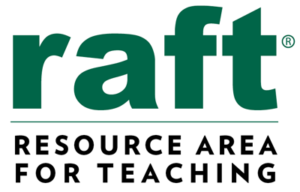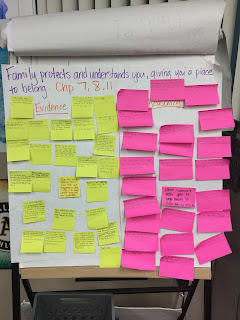Closing the Content Knowledge Gap
By Elisha Burns, RAFT Fellow
Let me be one of the first to say there is an elephant in the room of education and it is called content knowledge. As a teacher that has spent a few years teaching I can honestly say that the new Common Core curriculum has really opened my eyes to some of my own educational weaknesses. Have you seen some the questions that our students are being asked in the new curriculum? I consider myself an educated person (I do have my Master’s degree in Elementary Education), but some of the questions being presented to my students really makes me question my level of content knowledge. It’s not that I can’t solve the problems, but I find myself spending quite a bit of time working out the problems so that I can teach my students how to tackle them.
In the era of Common Core comes the new problem of teacher knowledge, especially in high needs areas. Gone are the days of catchy rhymes and memorizing factoids, the new standards require students and teachers to dig deeper into the content. But how can a teacher ask a student to dig deeper into a topic they only have a surface level of knowledge in? And how are high need communities, that cannot keep experienced teachers expected to provide the appropriate level of content knowledge?
The reality is the level of content knowledge necessary to secure a teaching credential is less than the amount of content knowledge being required to succeed using the Common Core curriculum. That knowledge gap will decrease overtime as credentialing programs adapt, but time is not of the essence in the Common Core era. We need ways to bridge the content gap because it is no longer enough to just have a general knowledge of a concept. Teachers are being challenged to teach at a higher level because our students are expected to conceptualize and justify their ideas at a higher level.
Common Core standards expects students to not only know their content facts in isolation, but to have the higher order thinking skills necessary to apply their knowledge in practical applications. Once students apply these skills they are expected to be able to communicate and justify the thinking process they used clearly using academic English. Obviously this is not the elementary education that most educators experienced, yet we are expected to successfully implement it.
Now a motivated veteran teacher may have a slight advantage when it comes to implementation. They will seek out learning opportunities, like the courses offered at RAFT, to fill in any content gaps. In addition, they have the advantage of years of teaching the same subject, familiarity with the student misconceptions, and continuing education to help adapt to the rigor necessary to successfully implement the new curriculum. So what happens when you have a new teacher or a less motivated veteran teacher asked to do the same job? How do the students in those communities gain the knowledge necessary to meet Common Core standards? Based on the most recent California Common Core test results, the students just don’t get the knowledge.
This disparity is obvious when you look at the neighborhoods that had the lowest performance on the first round of Common Core testing in California. Teachers in these high need areas tend to be the most novice or least motivated veteran teachers. The veteran teachers may have lost their motivation due to the stress and challenge of teaching in a high needs area. Teaching in a high needs area brings several hidden stresses and challenges that can defeat even a teacher with the best of intentions, but I will save that story for another time. All to often new teachers are hired to work in these high needs areas because motivated veteran teachers have decided to leave for greener pastures. Remember motivated veteran teachers are in demand and why would you stay in a high needs area if you can utilize your skills in a less stressful environment? Unfortunately the result of this trend is the highest need students are being taught by educators with the least amount of content knowledge.
The bottom line is teachers need more opportunities to deepen their content knowledge to prepare students for the new standards.

